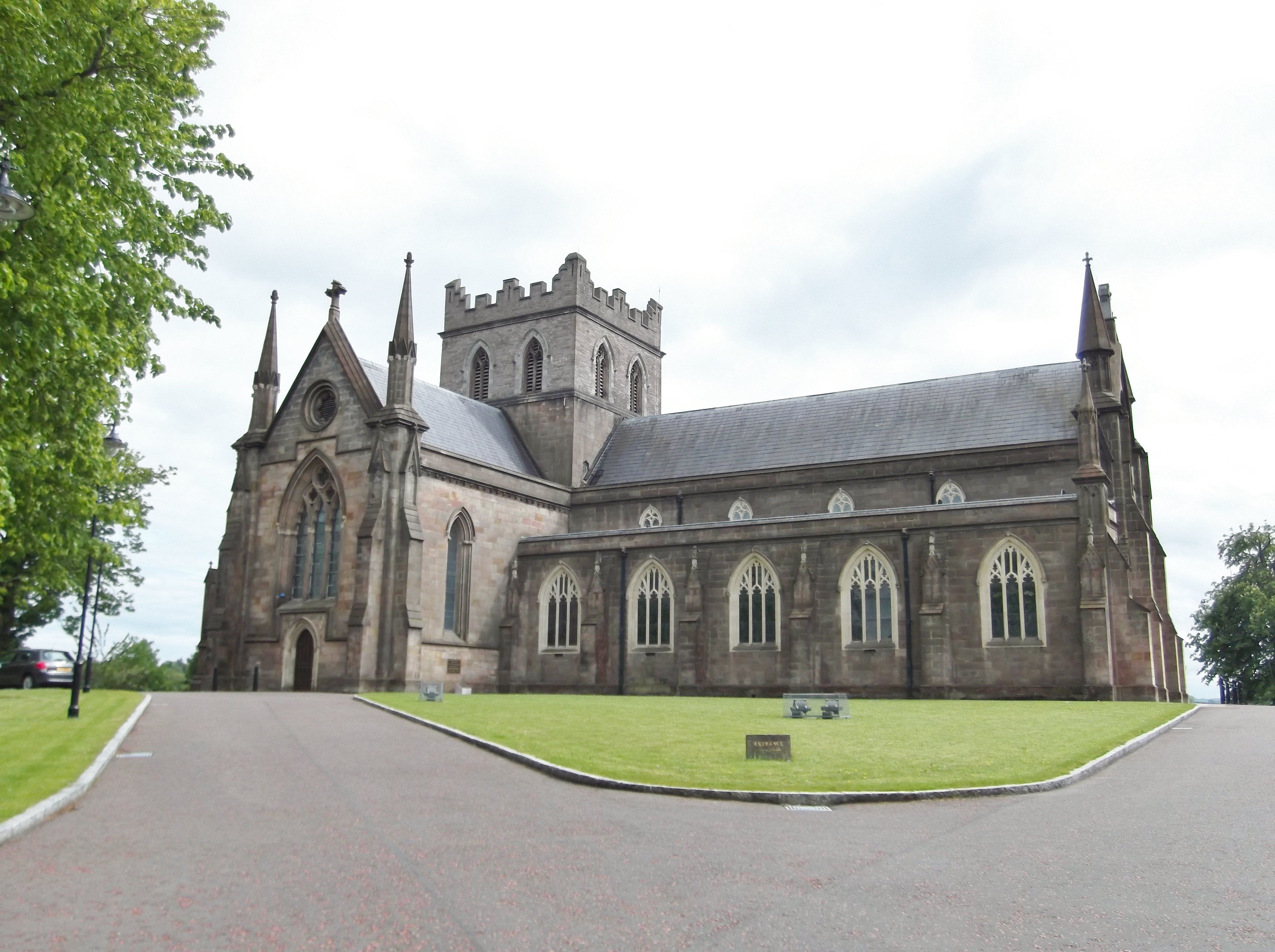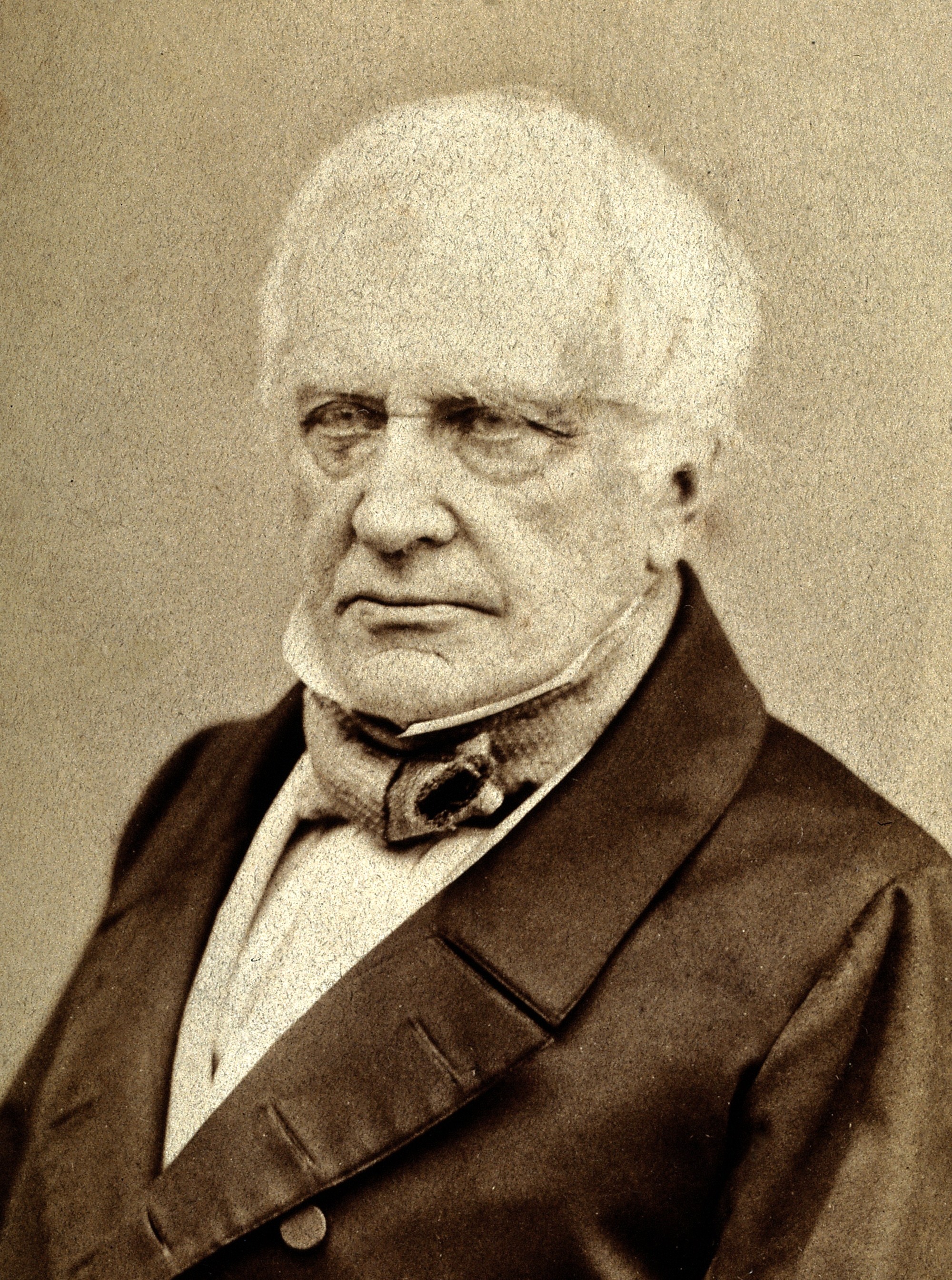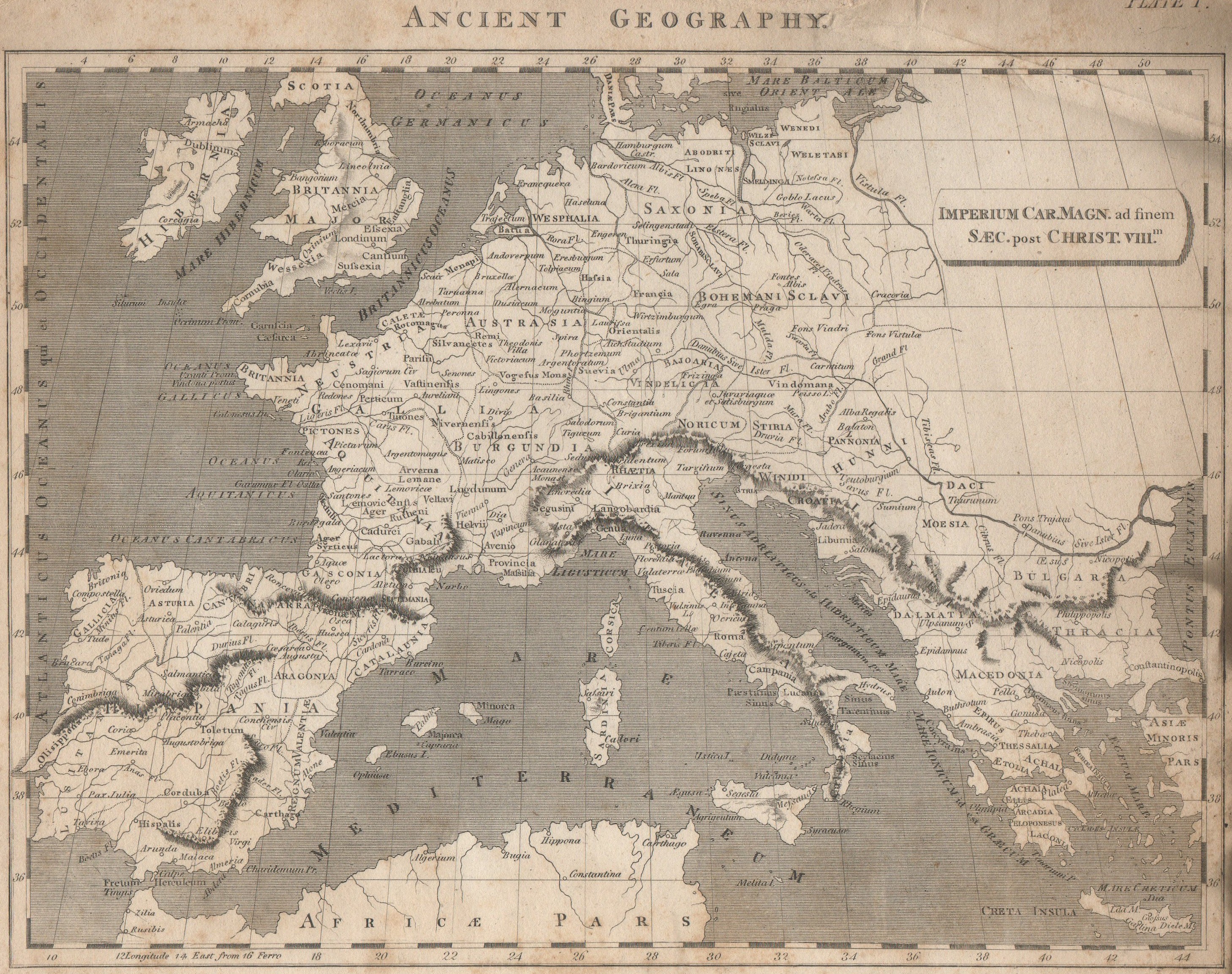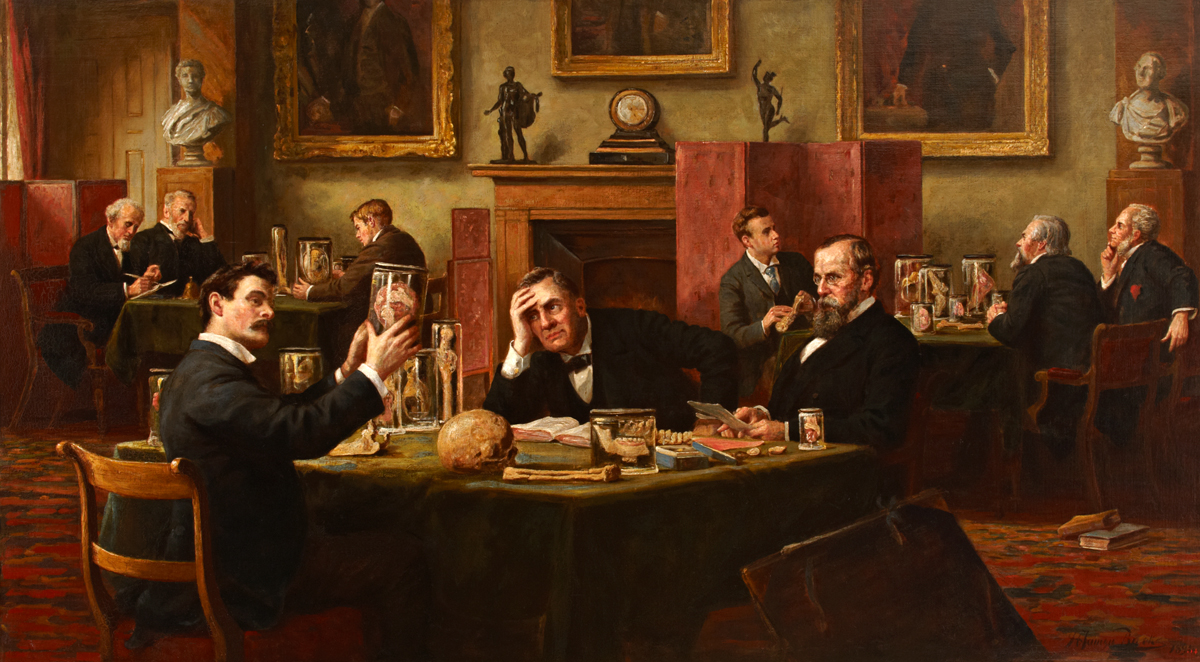|
James Macartney (anatomist)
James Macartney (born 8 March 1770 in Armagh, died 6 March 1843 in Dublin) was an anatomist. He began life as an Irish volunteer in 1780, and was afterwards educated at the endowed classical school at Armagh, and then at a private school. He was associated for a time with the Sheares brothers and Lord Edward Fitzgerald, the United Irishmen but, being dissatisfied with their programme, he cut himself adrift and began to study medicine. Biography He apprenticed himself to William Hartigan (1756?–1812) on 10 Feb. 1793, his master being president of the Royal College of Surgeons of Ireland in 1797. Macartney also entered as a pupil in the college school, Mercer Street, Dublin, where he made some dissections for the museum, and he attended the Lock hospital and the Dublin dispensary. In 1796 he came to London to attend the Hunterian or Great Windmill Street school of medicine, and he became an occasional pupil at St. Thomas's and Guy's hospitals. He also attended the lectures of ... [...More Info...] [...Related Items...] OR: [Wikipedia] [Google] [Baidu] |
Armagh
Armagh ( ; ga, Ard Mhacha, , " Macha's height") is the county town of County Armagh and a city in Northern Ireland, as well as a civil parish. It is the ecclesiastical capital of Ireland – the seat of the Archbishops of Armagh, the Primates of All Ireland for both the Roman Catholic Church and the Church of Ireland. In ancient times, nearby Navan Fort (''Eamhain Mhacha'') was a pagan ceremonial site and one of the great royal capitals of Gaelic Ireland. Today, Armagh is home to two cathedrals (both named after Saint Patrick) and the Armagh Observatory, and is known for its Georgian architecture. Although classed as a medium-sized town, Armagh was given city status in 1994 and Lord Mayoralty status in 2012, both by Queen Elizabeth II. It had a population of 14,777 people in the 2011 Census. History Foundation ''Eamhain Mhacha'' (or Navan Fort), at the western edge of Armagh, was an ancient pagan ritual or ceremonial site. According to Irish mythology ... [...More Info...] [...Related Items...] OR: [Wikipedia] [Google] [Baidu] |
Anatomy Act 1832
The Anatomy Act 1832 (2 & 3 Will. IV c.75) is an Act of Parliament of the United Kingdom that gave free licence to doctors, teachers of anatomy and bona fide medical students to dissect donated bodies. It was enacted in response to public revulsion at the illegal trade in corpses. Background The 19th century ushered in a new-found medical interest in detailed anatomy thanks to an increase in the importance of surgery. In order to study anatomy, human cadavers were needed and thus ushered in the practice of grave robbing. Before 1832, the Murder Act 1752 stipulated that only the corpses of executed murderers could be used for dissection. By the early 19th century, the rise of medical science – coinciding with a reduction in the number of executions – had caused demand to outstrip supply. Around 1810, an anatomical society was formed to impress upon the government the necessity for altering the law. Among its members were John Abernethy, Charles Bell, Everard Home, ... [...More Info...] [...Related Items...] OR: [Wikipedia] [Google] [Baidu] |
1843 Deaths
Events January–March * January ** Serial publication of Charles Dickens's novel '' Martin Chuzzlewit'' begins in London; in the July chapters, he lands his hero in the United States. ** Edgar Allan Poe's short story "The Tell-Tale Heart" is published in a Boston magazine. ** The Quaker magazine '' The Friend'' is first published in London. * January 3 – The '' Illustrated Treatise on the Maritime Kingdoms'' (海國圖志, ''Hǎiguó Túzhì'') compiled by Wei Yuan and others, the first significant Chinese work on the West, is published in China. * January 6 – Antarctic explorer James Clark Ross discovers Snow Hill Island. * January 20 – Honório Hermeto Carneiro Leão, Marquis of Paraná, becomes ''de facto'' first prime minister of the Empire of Brazil. * February – Shaikh Ali bin Khalifa Al-Khalifa captures the fort and town of Riffa after the rival branch of the family fails to gain control of the Riffa Fort and flees to Manama. Shaikh Mohamed bin Ahmed is k ... [...More Info...] [...Related Items...] OR: [Wikipedia] [Google] [Baidu] |
1770 Births
Year 177 ( CLXXVII) was a common year starting on Tuesday (link will display the full calendar) of the Julian calendar. At the time, it was known as the Year of the Consulship of Commodus and Plautius (or, less frequently, year 930 ''Ab urbe condita''). The denomination 177 for this year has been used since the early medieval period, when the Anno Domini calendar era became the prevalent method in Europe for naming years. Events By place Roman Empire * Lucius Aurelius Commodus Caesar (age 15) and Marcus Peducaeus Plautius Quintillus become Roman Consuls. * Commodus is given the title '' Augustus'', and is made co-emperor, with the same status as his father, Marcus Aurelius. * A systematic persecution of Christians begins in Rome; the followers take refuge in the catacombs. * The churches in southern Gaul are destroyed after a crowd accuses the local Christians of practicing cannibalism. * Forty-seven Christians are martyred in Lyon (Saint Blandina and Pothinus, ... [...More Info...] [...Related Items...] OR: [Wikipedia] [Google] [Baidu] |
Erinensis
Erinensis was the pseudonym used by Peter Hennis Green (1803–1870), an Irish physician who edited medical journals and wrote many columns for ''The Lancet'' from the 1820s to the 1840s. Life Green was born about 1803 in County Cork, Ireland, the son of a farmer. He entered Trinity College, Dublin in 1820. He graduated M.D. in 1827. He specialized in childhood diseases. From about 1824 to 1836, under the pseudonym Erinensis, he was the Dublin correspondent of the ''Lancet''. As such, he was "the author of a brilliant series of sketches and letters" on the Irish medical scene.Medical journals and medical knowledge, p. 127 He had a sharp eye for the pompous or ridiculous and was encouraged by Thomas Wakley, who had founded the journal in 1823. James Fernandez Clarke, a medical journalist who worked on the ''Lancet'' in its early days, suggested in his autobiography that Erinensis was responsible for the power the ''Lancet'' wielded in the 1820s and 1830s.Clarke, p.11 At the end ... [...More Info...] [...Related Items...] OR: [Wikipedia] [Google] [Baidu] |
Sir William Lawrence, 1st Baronet
Sir William Lawrence, 1st Baronet (16 July 1783 – 5 July 1867) was an English surgeon who became President of the Royal College of Surgeons of London and Serjeant Surgeon to the Queen. In his mid-thirties, he published two books of his lectures which contained pre-Darwinian ideas on man's nature and, effectively, on evolution. He was forced to withdraw the second (1819) book after fierce criticism; the Lord Chancellor ruled it blasphemous. Lawrence's transition to respectability occurred gradually, and his surgical career was highly successful. In 1822, Lawrence was elected a member of the American Philosophical Society in Philadelphia. Lawrence had a long and successful career as a surgeon. He reached the top of his profession, and just before his death the Queen rewarded him with a baronetcy (see Lawrence baronets) shortly before his death in 1867. Early life and education Lawrence was born in Cirencester, Gloucestershire, the son of William Lawrence, the town's chie ... [...More Info...] [...Related Items...] OR: [Wikipedia] [Google] [Baidu] |
Rees's Cyclopædia
Rees's ''Cyclopædia'', in full ''The Cyclopædia; or, Universal Dictionary of Arts, Sciences, and Literature'' was an important 19th-century British encyclopaedia edited by Rev. Abraham Rees (1743–1825), a Presbyterian minister and scholar who had edited previous editions of '' Chambers's Cyclopædia''. Background When Rees was planning his ''Cyclopædia'', Europe was in the aftermath of the French Revolution, and during serialised publication (1802–1820) the Napoleonic Wars and War of 1812 occurred. Britain absorbed into its empire a number of the former French and Dutch colonies around the world; Romanticism came to the fore; evangelical Christianity flourished with the efforts of William Wilberforce; and factory manufacture burgeoned. With this background, philosophical radicalism was suspect in Britain, and aspects of the ''Cyclopædia'' were thought to be distinctly subversive and attracted the hostility of the Loyalist press. Contributors Jeremiah Joyce and C ... [...More Info...] [...Related Items...] OR: [Wikipedia] [Google] [Baidu] |
Abraham Rees
Abraham Rees (1743 – 9 June 1825) was a Welsh nonconformist minister, and compiler of ''Rees's Cyclopædia'' (in 45 volumes). Life He was the second son of Esther, daughter of Abraham Penry, and her husband Lewis Rees, and was born in Llanbrynmair, Montgomeryshire. Lewis Rees (1710-1800) was independent minister at Llanbrynmair (1734–1759) and Mynyddbach, Glamorganshire (1759–1800). Rees was educated for the ministry at Coward's academy in Wellclose Square, near London, under David Jennings, entering in 1759. In 1762 he was appointed assistant tutor in mathematics and natural philosophy; on the move of the academy to Hoxton after Jennings's death in 1762 he became resident tutor, a position which he held till 1785, his colleagues being Andrew Kippis and Samuel Morton Savage; subsequently he was tutor in Hebrew and mathematics in the New College at Hackney (1786–96). His first ministerial engagement was in the independent congregation at Clapham, where he preache ... [...More Info...] [...Related Items...] OR: [Wikipedia] [Google] [Baidu] |
Royal College Of Physicians Of Ireland
The Royal College of Physicians of Ireland (RCPI), ( ga, Coláiste Ríoga Lianna na hÉireann) is an Irish professional body dedicated to improving the practice of general medicine and related medical specialities, chiefly through the accreditation of physicians by examination. History The "Royal" in the title comes from the Royal Charters that were granted in 1667, by King Charles II of England, and in 1692, by King William III and Queen Mary II of England. It was known as the King and Queen's College of Physicians in Ireland until 1890 when, under the charter of Queen Victoria, it adopted the present title. The College was founded in 1654 by John Stearne, a professor and registrar of Trinity College, Dublin, for the purpose of regulating the practice of medicine in Ireland. Originally, it was called "The Fraternity of Physicians of Trinity Hall", as its first home was in a building called Trinity Hall, given to the Physicians by Trinity College. The Royal Charter of 16 ... [...More Info...] [...Related Items...] OR: [Wikipedia] [Google] [Baidu] |
Dublin
Dublin (; , or ) is the capital and largest city of Ireland. On a bay at the mouth of the River Liffey, it is in the province of Leinster, bordered on the south by the Dublin Mountains, a part of the Wicklow Mountains range. At the 2016 census it had a population of 1,173,179, while the preliminary results of the 2022 census recorded that County Dublin as a whole had a population of 1,450,701, and that the population of the Greater Dublin Area was over 2 million, or roughly 40% of the Republic of Ireland's total population. A settlement was established in the area by the Gaels during or before the 7th century, followed by the Vikings. As the Kingdom of Dublin grew, it became Ireland's principal settlement by the 12th century Anglo-Norman invasion of Ireland. The city expanded rapidly from the 17th century and was briefly the second largest in the British Empire and sixth largest in Western Europe after the Acts of Union in 1800. Following independence in 1922, ... [...More Info...] [...Related Items...] OR: [Wikipedia] [Google] [Baidu] |
Royal College Of Surgeons Of England
The Royal College of Surgeons of England (RCS England) is an independent professional body and registered charity that promotes and advances standards of surgical care for patients, and regulates surgery and dentistry in England and Wales. The College is located at Lincoln's Inn Fields in London. It publishes multiple medical journals including the '' Annals of the Royal College of Surgeons of England'', the ''Faculty Dental Journal'', and the ''Bulletin of the Royal College of Surgeons of England''. History The origins of the college date to the fourteenth century with the foundation of the "Guild of Surgeons Within the City of London". Certain sources date this as occurring in 1368. There was ongoing dispute between the surgeons and barber surgeons until an agreement was signed between them in 1493, giving the fellowship of surgeons the power of incorporation. This union was formalised further in 1540 by Henry VIII between the Worshipful Company of Barbers (incorporated 146 ... [...More Info...] [...Related Items...] OR: [Wikipedia] [Google] [Baidu] |
John Abernethy (surgeon)
John Abernethy FRS (3 April 1764 – 20 April 1831) was an English surgeon. He is popularly remembered today for having given his name to the Abernethy biscuit, a coarse-meal baked good meant to aid digestion. Life He was a grandson of John Abernethy. He was born in Coleman Street in the City of London on 3 April 1764, where his father was a merchant. Educated at Wolverhampton Grammar School, he was apprenticed in 1779 to Sir Charles Blicke (1745–1815), a surgeon at St Bartholomew's Hospital, London. He attended the anatomical lectures of Sir William Blizard (1743–1835) at the London Hospital, and was employed to assist as ''demonstrator''; he also attended Percivall Pott's surgical lectures at St Bartholomew's Hospital, as well as the lectures of John Hunter. On Pott's resignation of the office of surgeon of St Bartholomew's, Sir Charles Blicke, who was assistant-surgeon, succeeded him, and Abernethy was elected assistant-surgeon in 1787. In this capacity h ... [...More Info...] [...Related Items...] OR: [Wikipedia] [Google] [Baidu] |







.jpg)